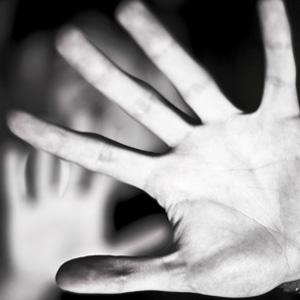
The Women Against Abuse shelter is the only refuge in Philadelphia for women escaping abusive relationships.
The building's location is a secret - for safety reasons. Its clients, like Sheila Armstrong, are afraid for their lives after having to flee violent husbands or boyfriends.
"When he was beating me up, he picked up a vacuum cleaner, beating me with the vacuum cleaner," Armstrong says. "Waking up in the hospital, that is all I remember."
Unfortunately, the situation Armstrong found herself in is not unique. Every year in the United States, about 1.3 million women are abused by their husbands or boyfriends, according the National Coalition Against Domestic Violence
Armstrong woke with a swollen lip, a broken arm and two black eyes. Without the Women Against Abuse shelter, She says she would have had nowhere to go.
"They do not call us as their first option. They call us when they run out of options."
Unfortunately, shelter official Pamela Ellerman says the facility can't help everyone who calls.
The shelter has 100 beds, where women and sometime their children may stay while looking for a permanent safe place. But it is turning away more women than ever, over 7,800 this year. Ellerman says requests for help have increased since the economic recession began in 2008, even as state and local governments have cut funding for their services.
"We do not know what that means for the long-term," Ellerman says. "We are also well aware that what we are already providing is well inadequate to the need."
To try to meet the need, Philadelphia Police Chief Charles Ramsey helped create a citywide program, partnering the shelter, the district attorney's office, and legal and advocacy groups in a coordinated effort to combat domestic abuse. The police department rewrote the forms used to document domestic abuse to gather more details and data, and officers now follow up with victims.
"It is one of the most complicated crimes that we investigate, and the women's groups will tell you. There is no easy answer to this."
Deputy Police Commissioner Patricia Giorgio-Fox says police receive thousands of calls a year from women, but making arrests is often difficult, usually due to a lack of evidence. Since the new partnership began this year, domestic-related arrests have increased more than seven percent during the first six months of 2011.
But Fox says police still need help from those being abused. "We can offer as much advice and counseling and help and alternatives as possible. But until the victim decides it is time, it is very difficult to correct that kind of behavior."
Sheila Armstrong, who is now on the board of Women Against Abuse, agrees. She says increasing public awareness about domestic violence is the best way to prevent abuse.
"I do not like the word 'victims.' Because most people want to look down and speak of you like a victim like you cannot handle yourself."
Other US cities are looking to Philadelphia's approach as a model for reducing domestic violence. Meanwhile, advocates for survivors of domestic abuse are urging Congress to reauthorize the Violence Against Women Act, which expired at the end of September. During the past 15 years, the law has provided more than $4 billion for programs and legal help for survivors of domestic abuse.
In domestic violence, children are often the forgotten victims
Renowned teacher admits abusing his wife
Obama sibling writes about abusive father
(來(lái)源:VOA 編輯:Rosy)
